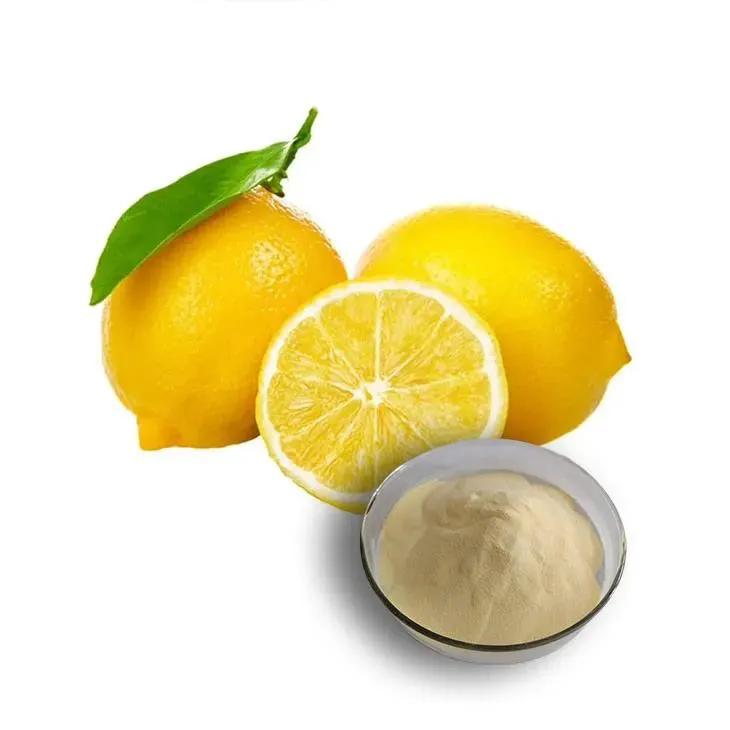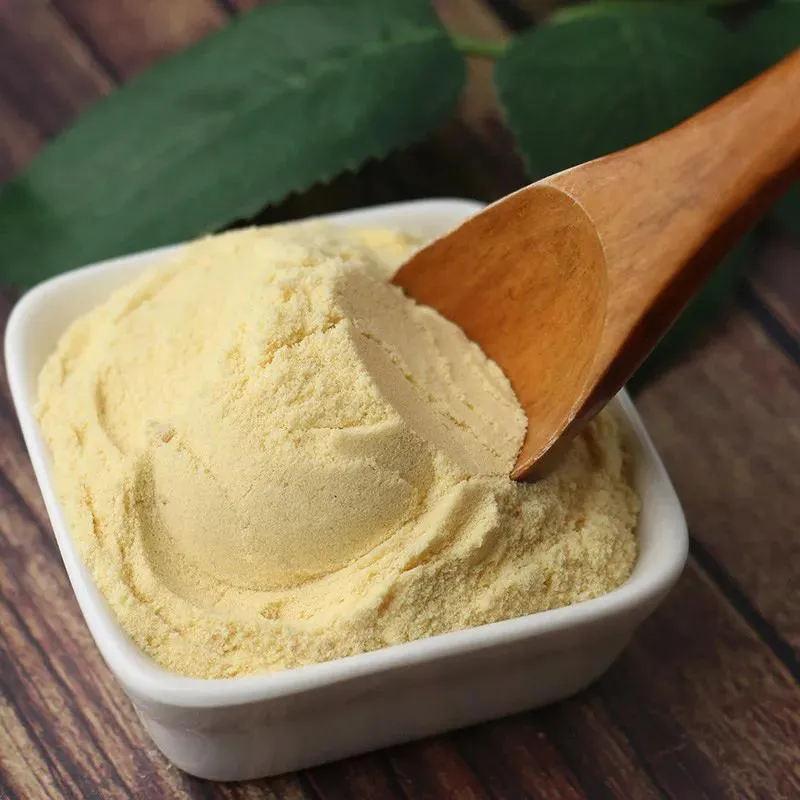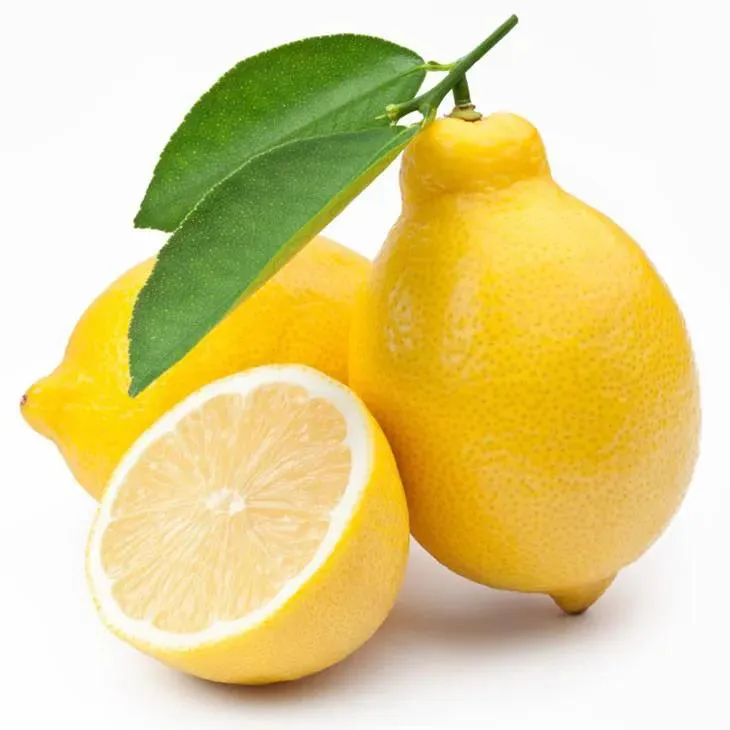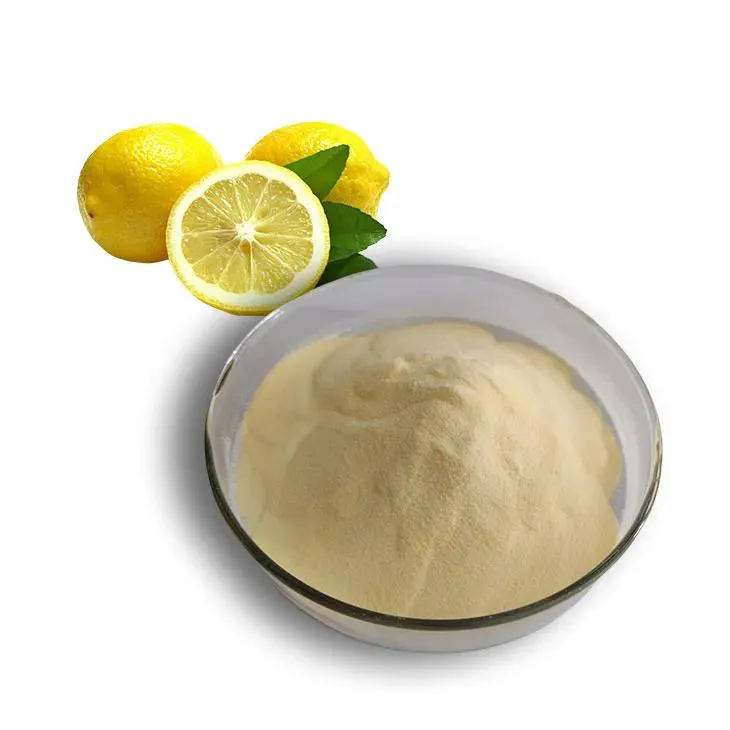- 0086-571-85302990
- sales@greenskybio.com
Lemon juice powder plants and skin - care products.
2024-11-11

Introduction
Lemon Juice Powder has emerged as a multi - faceted ingredient with significant applications in both the plant - related and skincare domains. Its unique chemical composition endows it with properties that are beneficial in these two seemingly disparate areas. This article will explore in detail how Lemon Juice Powder functions in plants and skincare.

Lemon Juice Powder in Plants
1. Role in Plant Propagation
Plant propagation is a crucial aspect of horticulture and gardening, and lemon juice powder can play an important role in this process. Cuttings, which are a common method of plant propagation, can benefit from the application of lemon juice powder. When taking a cutting from a plant, the goal is to encourage the cutting to develop roots and grow into a new, independent plant. Lemon juice powder can assist in this rooting process.
The acidity of lemon juice powder is one of the key factors in its positive impact on cuttings. This acidity helps to create an environment that is conducive to root development. It may stimulate the cells at the base of the cutting to divide and differentiate into root - like structures more rapidly. For example, in some softwood cuttings of plants such as roses or basil, applying a diluted solution of lemon juice powder has been observed to result in earlier and more abundant root formation compared to cuttings without such treatment.
2. Influence on Soil Nutrients
Another important aspect of lemon juice powder's role in plants is its effect on the soil. The soil is the medium in which plants grow, and the availability of nutrients in the soil is essential for plant health and growth. Lemon juice powder can interact with the soil in ways that enhance nutrient availability.
The acidity of lemon juice powder can break down certain substances in the soil. Some minerals and organic compounds in the soil may be bound in forms that are not easily accessible to plants. The acidic nature of lemon juice powder can react with these substances, causing chemical changes that release nutrients. For instance, it can help to break down complex forms of phosphorus, making it more available for plant uptake. This is especially beneficial for plants that have a relatively high demand for phosphorus, such as tomatoes or other fruiting plants.
However, it is important to note that the application of lemon juice powder to the soil needs to be carefully regulated. Excessive acidity can have a negative impact on soil pH and the soil microbiome. If the soil becomes too acidic, it can inhibit the growth of beneficial soil organisms and disrupt the balance of soil nutrients. Therefore, it is advisable to conduct soil tests before applying lemon juice powder and to follow recommended application rates.

Lemon Juice Powder in Skincare
1. Skin - lightening Properties
In the realm of skincare, one of the most well - known properties of lemon juice powder is its ability to lighten the skin. Skin pigmentation issues, such as dark spots, hyperpigmentation, and uneven skin tone, are common concerns for many people. Lemon juice powder offers a natural solution to these problems.
The mechanism behind its skin - lightening effect lies in its ability to inhibit the production of melanin. Melanin is the pigment responsible for the color of our skin, hair, and eyes. When melanin production is over - stimulated, it can lead to the formation of dark patches on the skin. Lemon juice powder contains certain compounds, such as citric acid and vitamin C, which can interfere with the enzymatic processes involved in melanin synthesis.
For example, in in - vitro studies, it has been shown that the application of lemon juice powder extracts can significantly reduce the activity of tyrosinase, an enzyme that plays a crucial role in melanin production. In vivo studies on human skin also suggest that regular use of skincare products containing lemon juice powder can lead to a gradual lightening of dark spots and a more even skin tone over time. However, it is important to note that individual results may vary, and it is always advisable to conduct a patch test before using any new skincare product containing lemon juice powder, especially for those with sensitive skin.
2. Moisturizing and Skin Elasticity
Besides its skin - lightening properties, lemon juice powder also has moisturizing benefits for the skin. The skin needs to maintain an appropriate level of hydration to function properly and look healthy. Lemon juice powder contains components that can help to keep the skin hydrated.
One of the main moisturizing elements in lemon juice powder is its high content of water - soluble vitamins, such as vitamin C. Vitamin C not only helps to protect the skin from environmental damage but also plays a role in maintaining the skin's moisture barrier. A healthy moisture barrier is essential for preventing water loss from the skin. When the skin is properly hydrated, it appears plumper and more youthful.
In addition to moisturizing, lemon juice powder can also contribute to maintaining the skin's elasticity. The skin's elasticity is determined by the presence of collagen and elastin fibers in the dermis. As we age, the production of these fibers decreases, leading to sagging skin. Lemon juice powder contains antioxidants that can help to protect the existing collagen and elastin fibers from damage caused by free radicals. By doing so, it can help to maintain the skin's firmness and elasticity, reducing the appearance of wrinkles and fine lines.

Conclusion
In conclusion, lemon juice powder has diverse and valuable applications in both plants and skincare. In the plant world, it can be a useful tool in plant propagation and soil nutrient management, although care must be taken to avoid over - acidifying the soil. In skincare, it offers benefits such as skin - lightening, moisturizing, and maintaining skin elasticity. However, it is important to use products containing lemon juice powder appropriately and be aware of any potential sensitivities or adverse reactions. With further research and development, the potential of lemon juice powder in these areas may be even more fully realized.

FAQ:
Q1: How does lemon juice powder help in plant rooting?
Lemon juice powder can adjust the chemical environment around the cuttings due to its acidity. This acidity may stimulate the cells of the cuttings to start the rooting process more easily. It might also have some antibacterial or antifungal properties that protect the cuttings from harmful microorganisms during rooting.
Q2: What nutrients in the soil can lemon juice powder release for plants?
Lemon juice powder's acidity can react with certain compounds in the soil. For example, it can break down some insoluble minerals containing iron, zinc or manganese, converting them into forms that plants can absorb more easily, thus providing these essential micronutrients to the plants.
Q3: Is lemon juice powder safe for all skin types in skincare?
While lemon juice powder has many beneficial properties for the skin, it may not be suitable for all skin types. People with very sensitive skin may experience irritation as its acidity can disrupt the skin's natural pH balance. It is advisable to do a patch test before using any product containing lemon juice powder on a large area of the skin.
Q4: How does lemon juice powder inhibit melanin production?
Lemon juice powder contains certain compounds that can interfere with the enzymatic processes involved in melanin synthesis. These compounds may act on the melanocytes (the cells that produce melanin) and disrupt the normal production cycle of melanin, leading to a reduction in its production.
Q5: Can lemon juice powder completely replace other moisturizers in skincare?
No, lemon juice powder cannot completely replace other moisturizers. Although it has some moisturizing elements, it may not provide all the necessary components for long - term and in - depth skin hydration. Other moisturizers often contain a combination of lipids, humectants and occlusives that work together to keep the skin hydrated, while lemon juice powder mainly provides a complementary moisturizing effect.
Related literature
- The Role of Citric Acid - Rich Substances in Plant Growth"
- "Lemon - Derived Ingredients in Skincare: Benefits and Precautions"
- ▶ Hesperidin
- ▶ citrus bioflavonoids
- ▶ plant extract
- ▶ lycopene
- ▶ Diosmin
- ▶ Grape seed extract
- ▶ Sea buckthorn Juice Powder
- ▶ Beetroot powder
- ▶ Hops Extract
- ▶ Artichoke Extract
- ▶ Reishi mushroom extract
- ▶ Astaxanthin
- ▶ Green Tea Extract
- ▶ Curcumin Extract
- ▶ Horse Chestnut Extract
- ▶ Other Problems
- ▶ Boswellia Serrata Extract
- ▶ Resveratrol Extract
- ▶ Marigold Extract
- ▶ Grape Leaf Extract
- ▶ blog3
- ▶ blog4
- ▶ blog5
-
Organic Tongkat Ali extract powder factory.
2024-11-11
-
How to make powder with ashwagandha extract.
2024-11-11
-
Rosehip extract manufacturers from China.
2024-11-11
-
The best cat's claw extract in nature.
2024-11-11
-
Chinese Dandelion Leaf Extract Suppliers.
2024-11-11
-
Tongkat Ali Extract
2024-11-11
-
White Willow Bark Extract
2024-11-11
-
Yohimbine Bark Extract
2024-11-11
-
Ginseng Root Extract
2024-11-11
-
Kidney Bean Extract
2024-11-11
-
Aguaje Extract
2024-11-11
-
Red Date Extract
2024-11-11
-
Okra Extract
2024-11-11
-
Motherwort Extract
2024-11-11
-
Avocado Extract Powder
2024-11-11





















